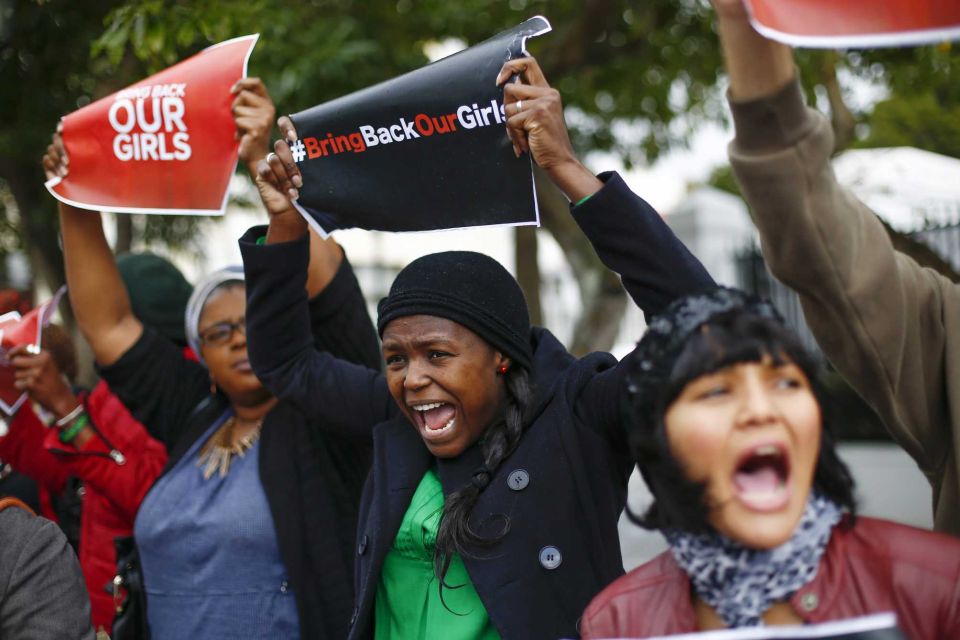
UNITED NATIONS — The Security Council on Friday issued one of its strongest statements to date against Boko Haram, the West African-based terrorist group that has launched waves of violence killing thousands of people in Nigeria, Chad, Cameroon and Niger.
The group, which became infamous after the abduction in 2014 of more than 200 girls in Chibok in northern Nigeria, has committed atrocities that equal or exceed those of the world’s more ferocious terrorist groups, including Islamic State and al-Qaida.
“The Security Council strongly condemns all terrorist attacks, abuses of human rights and violations of international humanitarian law by Boko Haram in the Lake Chad Basin region, including those involving killings and other violence against civilians, notably women and children, abductions, pillaging, rape, sexual slavery and other sexual violence, recruitment and use of children, and destruction of civilian property,” the council’s presidential statement read.
It comes on the eve of the Regional Security Summit in Abuja, a conference designed to strike a blow against Boko Haram. It follows a similar conference held in Paris almost immediately after the abduction of the girls in Chibok in April 2014. The summit was called by Nigeria’s president, Muhammadu Buhari.
The event is expected to draw heads of state and government from affected countries including Chad, Niger and Nigeria. Those countries have formed a Multinational Joint Task Force to quell the terrorist threat. France’s president, Francois Hollande is expected to attend as well as diplomats from Equatorial Guinea, Great Britain, the United States, the European Union, the Economic Community of West African States, the Economic Community of Central African States and the Gulf of Guinea Commission.
The U.S. State Department issued a statement saying Deputy Secretary Antony Blinken would lead a delegation.
The Security Council statement, which alluded to the possibility that Boko Haram may have committed crimes against humanity or war crimes, comes after the group, which has pledged allegiance to its Middle Eastern-based counterpart, Islamic State, has amassed an eye-brow-raising death toll.
The Institute for Economics and Peace ranked Boko Haram the world’s most prolific killer for political ends.
“Notable over the past year is the major intensification of the terrorist threat in Nigeria,” read the think tank’s Global terrorism Index for 2015. “The country witnessed the largest increase in terrorist deaths ever recorded by any country, increasing by over 300 percent to 7,512 fatalities. Boko Haram, which operates mainly in Nigeria, has become the most deadly terrorist group in the world.”
The Security Council issued a shorter, and less formal, press statement against the group in April 2015, a year after the mass abduction of 276 girls from Chibok.
The presidential statement is “made by the President of the Security Council on behalf of the Council, adopted at a formal meeting of the Council and issued as an official document of the Council” while the press statement is “a declaration to the media made by the President of the Security Council on behalf of all 15 Members.”
The statement released Friday also noted the burgeoning humanitarian crisis spawned by Boko Haram’s violence in several countries.
“The Security Council expresses deep concern at the alarming scale of the humanitarian crisis caused by the activities of Boko Haram in the Lake Chad Basin region, including the internal displacement of more than 2.2 million Nigerians, and over 450,000 internally-displaced persons and refugees in neighboring Cameroon, Chad and Niger,” the statement read. “The Security Council notes that an estimated 4.2 million people in the Lake Chad Basin region face a food security crisis, including 800,000 in Borno and Yobe States, Nigeria, where an estimated 184 children a day risk starvation without the immediate provision of emergency food assistance.”
Amnesty International has documented the group’s history of terror, saying that 2015 was particularly bloody.
”Despite advances by the military, attacks by Boko Haram in Nigeria, Cameroon, Chad and Niger have claimed the lives of at least 1,600 people since the start of June, bringing the death toll to at least 3,500 civilians in 2015 alone,” the group said in September. “The number of people killed so far this year is truly shocking with more than 3,500 civilian fatalities in less than 300 days,” said Netsanet Belay, Africa director for Research and Advocacy.
